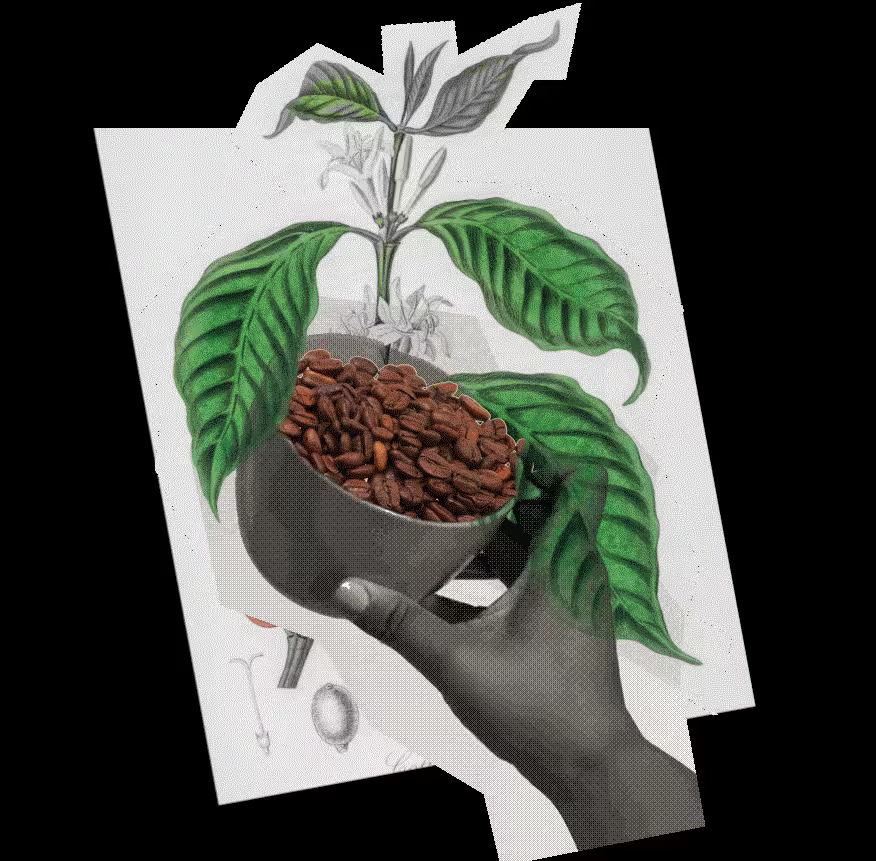A Climate Conversation over Coffee | Part 2
A case study by Shannon Colin
May 24, 2024
Key Takeaways
- Counter Culture Coffee (CCC) prioritizes sourcing beans from farms that use regenerative agriculture practices in order to reduce the environmental impact of coffee production.
- CCC emphasizes the importance of cost transparency and fair compensation in the coffee supply chain. They allocate a significant portion of their revenue (45-50%) to the raw material costs and ensure that 30% of their sales price returns to the origin. This transparency helps consumers understand the true value of coffee and make more sustainable decisions.
Lessons in Sourcing from Katie Carguilo, Counter Culture Coffee & World Coffee Research
The environmental and community impact of coffee from bean to cup
We had the good fortune of speaking with Katie Carguilo, a trailblazer in the coffee industry. She’s a Coffee Manager at Counter Culture Coffee, a Board Member for World Coffee Research, and a reigning US Barista Champion. In Part 1, we discussed WCR’s work to rapidly develop climate change-resilient coffee plants. Coffee is one of the agricultural products with the highest GHG emissions today. This is primarily due to deforestation for land use, losses, fertilizer use, sun-grown monocropping that depletes the soil microbiome, and more. Coffee can, however, be a sustainably grown crop that serves as a carbon sink when done in an agroforestry setting with interplanting and shade growing. In other words, when grown sustainably, coffee can be an environmental hero which supports biodiversity, improves soil quality, and uses less water.
We asked Katie to tell us about the farms that Counter Culture Coffee (CCC) partners with to source beans. CCC prioritizes partnering with farms that use sustainable practices akin to serving as carbon sinks, where you sequester more carbon than you emit. Katie acknowledged that it could be cheaper to buy beans from large scale farms that monocrop for industrial export, but that CCC instead sources beans from farms leveraging regenerative agriculture practices, like growing at higher elevations in the mountains, with shade.
She elaborated,
A major source of greenhouse gasses in coffee production is the nitrous oxide emissions of synthetic fertilizer use, and the carbon dioxide emissions that are generated during the production of that fertilizer. So how you fertilize your coffee really makes a huge difference... At Counter Culture, our approach is to source coffees from suppliers who value sustainable agriculture. And to support continuous improvement amongst those farmers. And really we're kind of unique in that we don't buy coffee from Brazil and Vietnam. Other roasters are buying coffee from these origins because they're cheaper than a lot of the rest of the coffee in the world, and so they become sort of the base for a lot of people's blends. But we prioritize sustainability over cost efficiency. And that's kind of a line in the sand that we have drawn.
Transparency: The antidote to hidden costs of coffee
Maintaining sustainable, equitable business practices requires that consumers understand that their dollars have values - not just value. This level of care and intent in coffee production can naturally cost more to brew. While many of us are accustomed to drinking a $5+ cup of coffee, it’s important to recognize that, generally speaking, coffee farmers and farm workers are living below the poverty line. Katie acknowledged this is a sector-wide challenge and that everyone still has to find the right coffee that fits their budget, lifestyle, and personal interest in it.
That said, cost transparency is a pillar of CCC’s business and a lever for consumers and businesses to pull in support of sustainable coffee. Katie shared,
At CCC, we pay as much as we can for coffee and we are always transparent about what we pay. 45-50% of our revenue goes toward the raw material (the green beans). 30% of our sales price returns to origin. We strive to do more with single origin coffees, which we pay more for, and charge more for. If you do choose to buy a more expensive coffee on our menu, you know that that farmer is going to get more money from that sale, because that's how we do our pricing at CCC. As consumers, your willingness to pay more from these kinds of roasters can actually really contribute to a sustainable future for coffee and farming communities.
Putting aside the challenges of inflation on consumers worldwide, it does seem that the average price of coffee is not as high as the actual value of coffee. The whole value chain could benefit if there was a shift in the price and mindset around coffee. Roasters can help farmers by paying a higher price for green beans, and consumers can help the roasters, farmers, and everyone in between by either paying more for their cup of coffee, drinking less and higher quality coffee, or generally treating coffee as a ritual with respect instead of viewing coffee as a cheap commodity that can be thrown out half way through the cup.
Katie was optimistic and pragmatic, saying,
We prioritize building traceable partnerships, taking on challenges that farmers face, like pests, diseases, low yield, and changing climates, and helping them tackle these problems. We want to see a thriving, curious, educated coffee community, so we offer free cuppings on Friday, and we have twelve training centers. All of our wholesale clients can take our training classes at no cost.
Upon asking Katie what advice she would give to consumers about coffee, she said,
I think we're really lucky to be able to drink the coffee that we drink, and that it's so accessible to us. Support transparent supply chains. Invest in coffees that come from clear origins and from roasters who care and are working to make a real difference. Approach coffee with a healthy dose of curiosity. It's a really fascinating agricultural product, and it provides so much more than just the daily caffeine fix. It has stories behind it. It represents all these different cultures.
Learn more by reading Counter Culture Coffee’s impact report, and support local coffee shops that provide transparency and demonstrate strong relationships with their farming partners!






